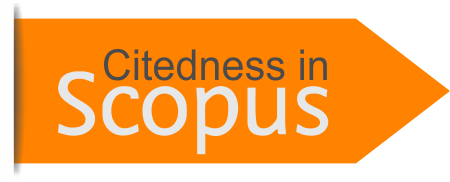PEMANFAATAN LAW AND ECONOMICS SEBAGAI METODOLOGI ANALISIS HUKUM DI INDONESIA
Abstract
Abstract
There are various dimensions of legal thoughts to solve and provide logical solutions for legal issues or problems. The complexity of problems that require legal solutions creates an urgency to explore interdisciplinary analysis, one of which is between legal science and economic studies. This article is to explore the available options for economic analysis of laws (law and economics as an interdisciplinary approach on laws) and their use in the Indonesian legal system. The desired state is to present an alternative methodological tool for legal studies in Indonesia. Theories, conventions, and economic principles within the law and economics framework are relevant to be methodological tools to solve legal issues in Indonesia.
Abstrak
Pemikiran hukum memiliki berbagai dimensi, dengan tujuan menjawab isu/permasalahan hukum serta memberikan solusi logis. Kompleksitas masalah yang memerlukan solusi hukum mendorong kebutuhan eksplorasi atas irisan interdisipliner, salah satunya antara ilmu hukum dan ekonomi. Artikel ini mengeksplorasi pilihan-pilihan analisis keekonomian tentang hukum (law and economics sebagai pendekatan interdisipliner tentang hukum) dan pemanfaatannya pada sistem hukum Indonesia. Penulisan bertujuan melengkapi khazanah metodologi analisis hukum di Indonesia. Teori, kaidah, dan prinsip ekonomi dalam kerangka law and economics relevan menjadi kacamata metodologis untuk memecahkan persoalan hukum di Indonesia.
Copyright (c) 2022 Kristianus Pramudito Isyunanda

This work is licensed under a Creative Commons Attribution 4.0 International License.
Authors who publish with this journal agree to the following terms:
- Authors retain copyright and grant the journal right of first publication with the work simultaneously licensed under a Creative Commons Attribution License that allows others to share the work with an acknowledgement of the work's authorship and initial publication in this journal.
- Authors are able to enter into separate, additional contractual arrangements for the non-exclusive distribution of the journal's published version of the work (e.g., post it to an institutional repository or publish it in a book), with an acknowledgement of its initial publication in this journal.
- Authors are permitted and encouraged to post their work online (e.g., in institutional repositories or on their website) prior to and during the submission process, as it can lead to productive exchanges, as well as earlier and greater citation of published work.





















